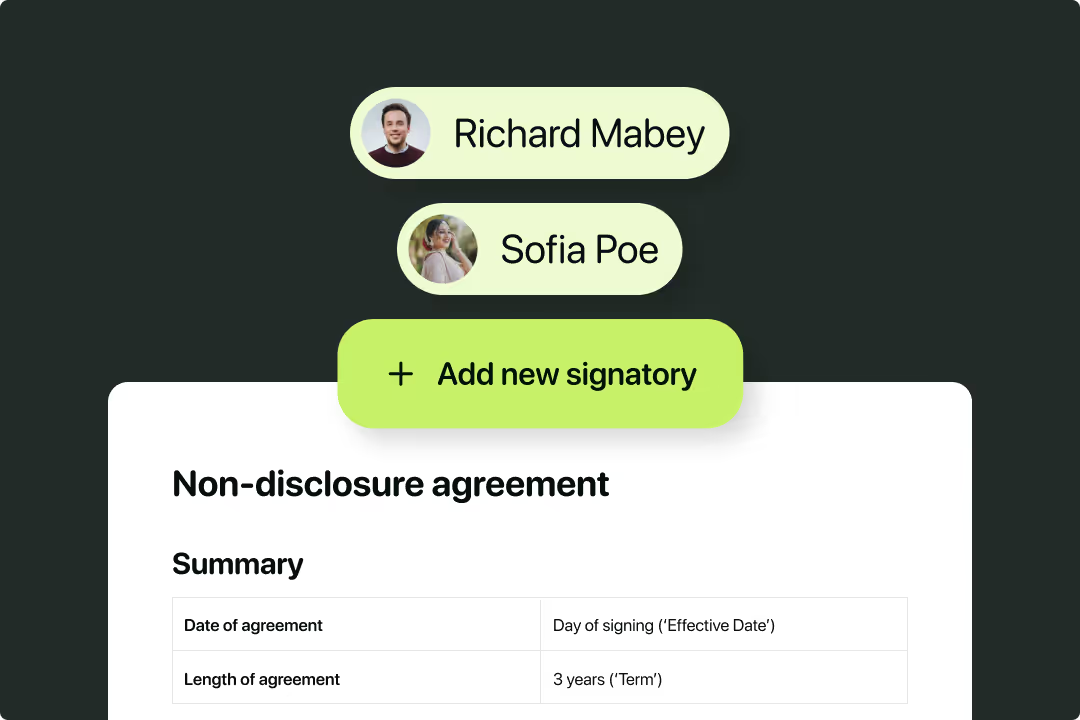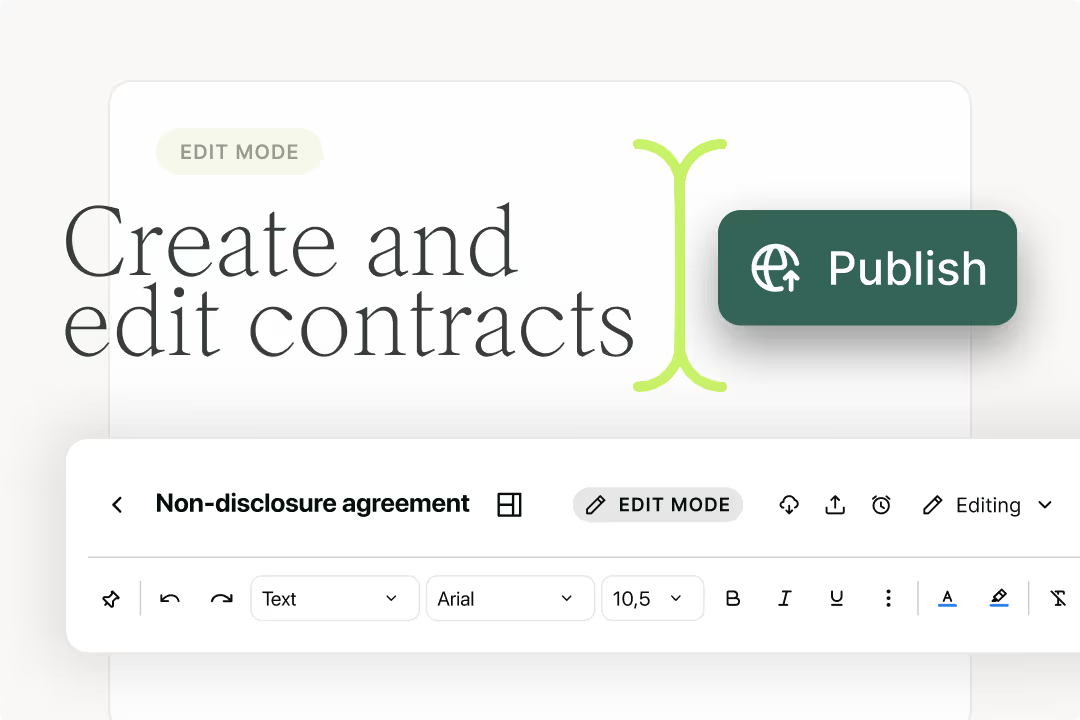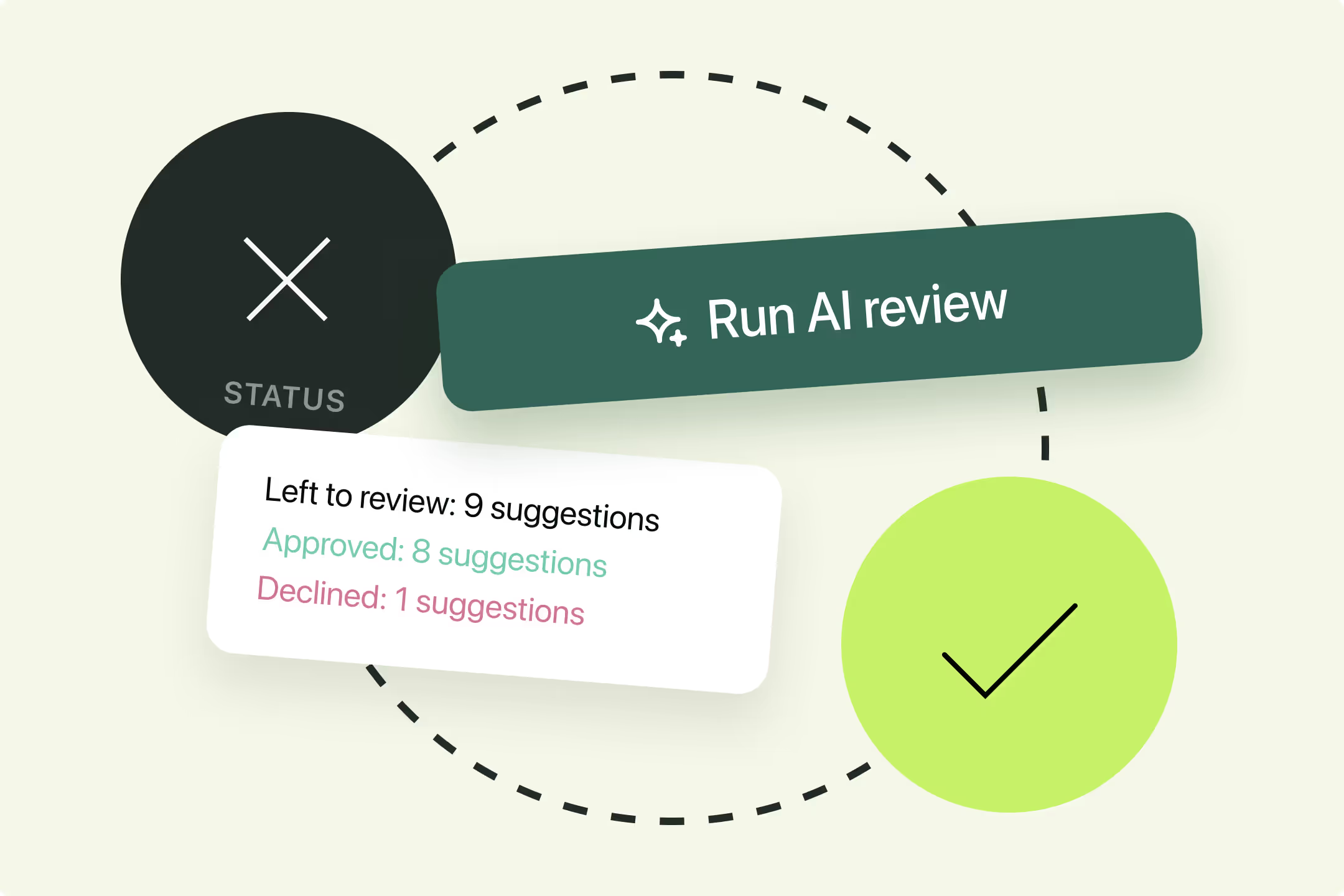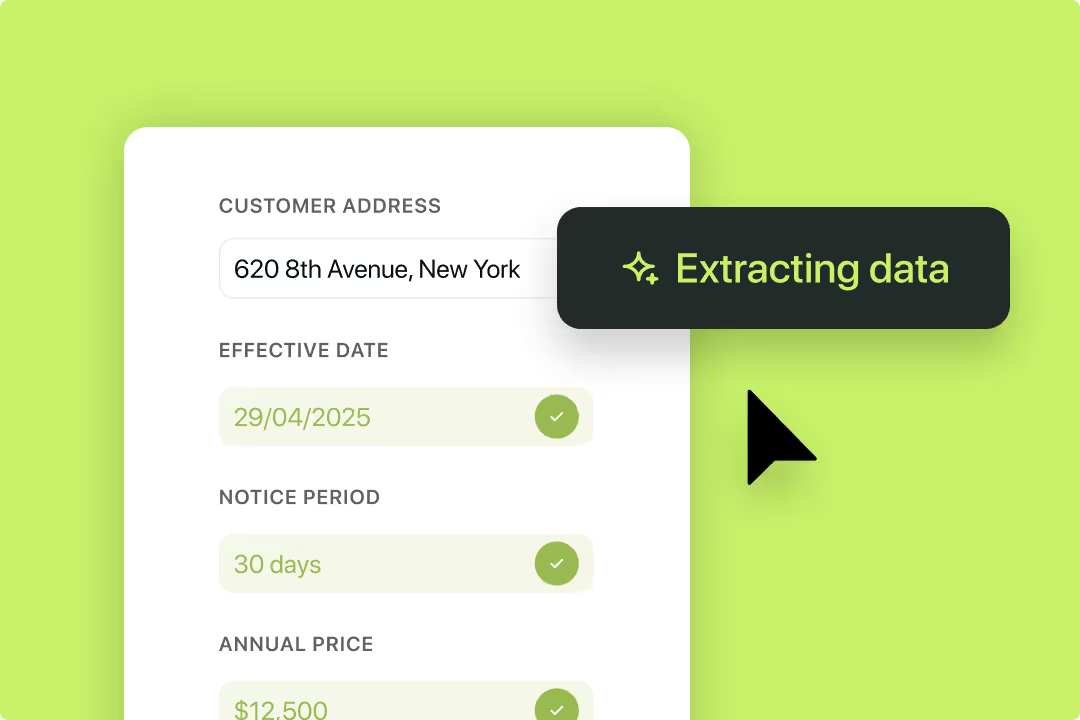Solutions
Customer Support
Resources
The contract specialist role (sometimes called contracts manager) is a reflection of the central role that contracting plays in driving business growth, as well as controlling risk.
While contracts are legal documents, they affect every part of the company, as well as its customers, suppliers and vendors. It’s important to get it right.
The role of a contract specialist typically includes competencies and tasks like:
… as well as a range of responsibilities that will be specific to the company in question. It's also worth noting that contract specialists don't necessarily need to be attorneys or lawyers to be qualified to undertake these responsibilities, they can come from a variety of backgrounds and still hold the relevant experience in contract drafting, negotiation and management.

There are thousands of contract specialist roles being advertised in the US and Europe - check out sites like Indeed or Totaljobs for the latest job opportunities or advice about how to become a contract specialist.
For all the latest legal roles at high-growth companies, bookmark the General Counsel jobs board. Salary.com offers benchmarking data around contract specialist salaries which can help companies hiring for this role.
And if you're instead looking for an intuitive software solution, get in touch - hit the button below.

At their core, contracts are essentially promises that exist on paper, or nowadays, in-browser; but they’re fundamental to so many functions of the business. In high-growth industries like B2B SaaS, they’re the mechanism by which recurring revenue is recognized. Finance can’t forecast without them, nor can risk and compliance functions evaluate the company’s risk profile.
With so many competing interests around contracts, it’s understandable why a company might hire a specialist to straddle the legal, procurement, sales, HR, finance and operations teams, helping to keep processes moving and taking ownership of the contract pipeline and repository.
Similarly, manual processes still plague contract creation, collaboration and management, with companies often using a mixture of Word, email, shared drives and eSignature to agree and store contracts.
The amount of work involved in maintaining this process across multiple systems, and perhaps integrating them with additional systems of record like CRM, can make it seem sensible to employ someone full-time to handle it.

As a GC considering their next hire, or a COO wondering which operations competencies to hire next, the slightly unhelpful answer to this question is ‘it depends’.
It depends on the specifics of your company - what kind of contracts you primarily deal with, what the pain points are, and how well resourced your legal or legal operations teams are. The rise of legal ops as its own team or even function mean there’s often a mandate for roles related to legal that focus solely on process (as opposed to advising on legal matters and risk).
However, a contract specialist might not be the right choice in the long term. If contract volumes are growing, and you hire a contract specialist role to deal with the increase in manual process that comes with increased volume, then if volumes keep growing, you’ll need another contract specialist.
Instead of building out the manual, unscalable process, it would be better to use automation to remove manual work from the contracts process entirely, enabling business colleagues to self-serve their contract needs, rather than needing specialist headcount to support them.
All too often we see companies that find themselves caught between a digital solution for one function (like sales) and a manual process for another (like legal).
This often results in a contract specialist, originally hired for their expertise with legal terms and conditions, spending the majority of their time maintaining a Salesforce integration and never getting to do any high-value work.
If you don’t want to invest in a contract specialist to support a manual process, you can use browser-based automation to enable business colleagues to self-serve on the legal documents they need to drive business growth. Here’s how to do it.
The legal team, or external counsel if you’re yet to hire an in-house team, creates the templates from which business colleagues can generate their own contracts. The terms and language of these templates should be optimized to encourage signing and to minimize negotiation, to reduce friction in the workflow.

Colleagues who need a contract can use a simple, natural language Q&A flow to generate the contract they need. Juro customers often start with high-volume, low-complexity contracts like NDAs, MSAs or employment offer letters.
To reduce the time cost and painful manual process involved in moving between Word, email and cloud platforms, use a browser-based contracts platform like Juro that will let you handle negotiation with counterparties online.
With single sign-on, colleagues can do this directly, rather than needing a contract specialist. This also preserves a digital audit trail of what changes were made and by whom.

Use a secure digital signature, like Juro’s native eSignature, to agree contracts online via desktop, laptop or any mobile device. This ensures that business colleagues (and their customers) don’t need to meet in person or exchange physical correspondence to agree contracts, making it faster and easier to close deals or hire new employees.
To make sure contract workflow progresses smoothly and quickly, it’s important to monitor analytics to spot bottlenecks and pain points in the contract process. Reporting on these metrics also helps legal or legal operations teams to show improvements to their managers, and make the business case for additional headcount or investment in technology.

If you decide to go down the route of self-serve, rather than hiring a contract specialist, it’s important to choose a contract automation platform that’s user-friendly. If software imposed on commercial colleagues is too complex, it won’t be adopted and contracts will revert to a messy, manual, opaque way of working.
Independent reviews consistently find Juro to be easier to use than its competitors - if you want to forego the contract specialist role for an intuitive software solution, hit the button below and find out how we can help you to automate routine contracts at scale.
Lorem ipsum dolor sit amet, consectetur adipiscing elit. Suspendisse varius enim in eros elementum tristique. Duis cursus, mi quis viverra ornare, eros dolor interdum nulla, ut commodo diam libero vitae erat. Aenean faucibus nibh et justo cursus id rutrum lorem imperdiet. Nunc ut sem vitae risus tristique posuere.

